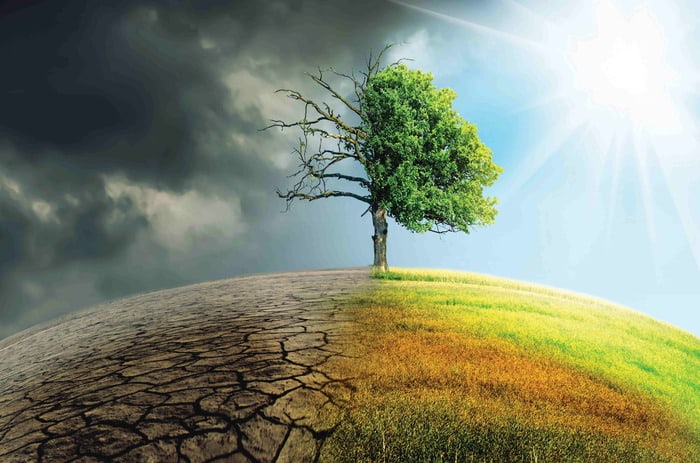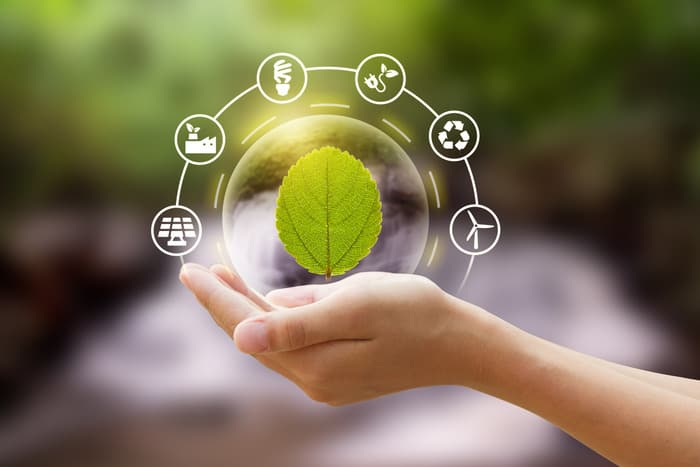Whether you are a climate change skeptic or a proponent for reducing anthropogenic climate change, it should be clear to all at this stage that the global economy faces significant challenges in achieving sustainable development objectives. This is particularly pertinent in the area of climate change and energy sustainability because the potential impacts of perturbed climate and weather patterns present many challenges that can be seen across multiple sectors, including agriculture, water management, biodiversity, health, and infrastructure.
Despite efforts to mitigate the impacts of climate change and promote sustainable development, the world is still facing significant challenges in these areas. Of course, climate change is a multifaceted problem. The effects are also not felt uniformly across the planet or even by people in the same geographical areas but with different socioeconomic issues.

The Reality of Climate Change
It doesn’t matter where you are in the world or what your socioeconomic standing is at any given time. The effects of climate change will impact us all through a range of direct and indirect effects. The Intergovernmental Panel on Climate Change (IPCC) has warned that unless global warming is limited to 1.5 degrees Celsius above pre-industrial levels, the world could face catastrophic impacts such as widespread flooding, food and water shortages, and the loss of biodiversity, which provides billions of dollars of ecosystem services every year.
Notwithstanding the human element, it’s safe to say that the aforementioned impacts could significantly hamper economic growth and progress toward sustainable development goals. So what can be done to address some of these challenges?
Work Towards Energy Sustainability?
There is no silver bullet when we talk about energy sustainability, but it is clear to many that there is an increased need for green energy and reduced fossil fuel consumption. Unfortunately, the world is still heavily reliant on fossil fuels, which have been a major contributor to anthropogenic climate change. Furthermore, the demand for fossil fuel energy continues to grow in some countries, and there are no viable alternatives in many cases, either.
The transition to a sustainable energy system is complex. Access to affordable and reliable energy remains a challenge for many communities around the world, particularly in developing countries. Even in developed nations, there is a heavy reliance on fossil fuels, which seems unlikely to wane in the short term. The problem with this is that there is not a consistent drive for energy sustainability across the globe, though, which adds another layer of complexity to matters. Geopolitical influence is ever present on the energy front.
Energy sustainability requires a coordinated response from governments, businesses, and civil society. However, one of the key challenges is ensuring that policies and investments are aligned with sustainable development objectives and that these objectives will not negatively impact participants. This requires a shift away from short-term thinking and towards long-term planning, taking into account the social, economic, and environmental impacts of decisions.
Investment is Key
Money makes the world go round. The need for investment is clear, but there is a lot of variation in how governments are trying to deal with the issue of energy sustainability. Many intend to continue on the course of fossil fuel consumption. It is worth noting that different countries may, in fact, be unable to adopt renewable energy sources like geothermal, tidal, or even nuclear. This could be due to availability, practicality, or the cost of implementation.

So what can be done if fossil fuels are here to stay? Well, there are ways to be more efficient with the energy that we have available. There has been a big drive in the west to move towards more efficient infrastructure. For businesses and organizations, this can include things like investing in energy-efficient infrastructure, like commercial air conditioning and refrigeration systems. There is also the widespread implementation of SMART technology in businesses too, which provides energy reductions and also saves companies money at the same time. When it comes to domestic users, there is a big push toward reducing consumption.
Education is key for helping individual to reduce their carbon footprint, for example, but the entire system needs to change in order for any improvements to be made. It is no use asking people to use less energy if they are only able to select products and services from companies that make no effort to become more sustainable. Again, the cost is the major driving force behind consumer behavior, so relying on every person to make changes may not be enough if big business is not on board.
In conclusion, the challenges facing the global economy in achieving sustainable development objectives in the areas of climate change and energy sustainability are significant. These challenges require a coordinated response from governments, businesses, and civil society. The road ahead may be challenging, but the time for action is now.